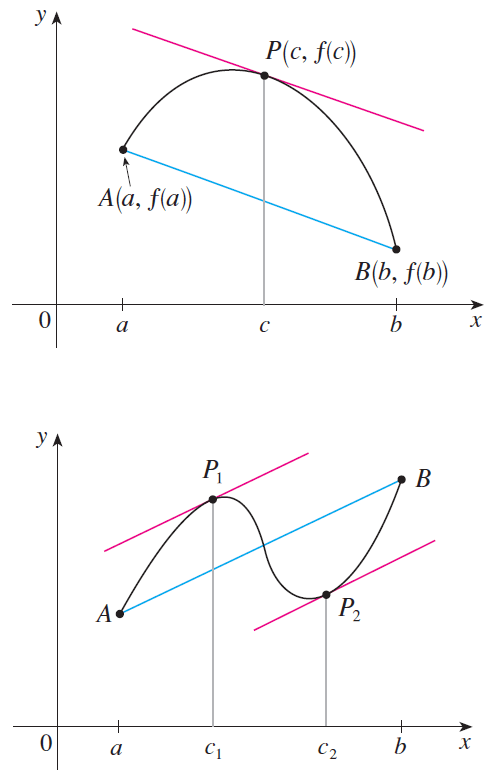REMAINDER THEOREM AND FACTOR THEOREM WORKSHEET
Problem 1 :
f(x) = x3 + 3x2 + 3x + 1
In the polynomial function f(x) defined above, using Remainder Theorem, find the remainder when f(x) is divided by (x + 1).
Problem 2 :
f(x) = x3 - 3x + 1
In the polynomial function f(x) defined above, using Remainder Theorem, find the remainder when f(x) is divided by (2 - 3x).
Problem 3 :
2x4 + 3x3 + 2kx2 + 3x + 6
Find the value of k for which the polynomial above is divisible by (x + 2).
Problem 4 :
x3 - 4x2 - 2x + 20
Using Factor Theorem, show that (x + 2) is a factor of the polynomial above.
Problem 5 :
Is (3x - 2) a factor of (3x3 + x2 - 20x + 12) ?
Problem 6 :
2x3 - 6x2 + mx + 4
Find the value of m, if (x - 2) is a factor of the polynomial above.
Problem 7 :
p(x) = 4x3 - kx + k
If (x + 1) divides p(x) without remainder, find the value of k.
Problem 8 :
p(x) = (3x2 - 5)(x + m) - 20
In the polynomial p(x) defined above, k is a constant. If x is a factor of p(x), what is the value of m?

Answers
1. Answer :
f(x) = x3 + 3x2 + 3x + 1
Equate the divisor (x + 1) to zero and solve for x.
x + 1 = 0
x = -1
By Remainder Theorem, when p(x) is divided by x + 3, the remainder is f(-1).
Remainder :
= f(-1)
= (-1)3 + 3(-1)2 + 3(-1) + 1
= -1 + 3(1) - 3 + 1
= -1 + 3 - 3 + 1
= 0
2. Answer :
f(x) = x3 - 3x + 1
Equate the divisor (2 - 3x) to zero and solve for x.
2 - 3x = 0
x = ⅔
By Remainder Theorem, when f(x) is divided by 2 - 3x, the remainder is f(⅔).
Remainder :
= f(⅔)
= (⅔)3 - 3(⅔) + 1
= ⁸⁄₂₇ - 2 + 1
= ⁸⁄₂₇ - 1
= ⁸⁄₂₇ - ²⁷⁄₂₇
= ⁽⁸ ⁻ ²⁷⁾⁄₂₇
= -¹⁹⁄₂₇
3. Answer :
Let p(x) = 2x4 + 3x3 + 2kx2 + 3x + 6.
Equate the divisor (x + 2) to zero and solve for x.
x + 2 = 0
x = -2
When p(x) is divisible by (x + 2), the remainder p(-2) must be zero.
p(-2) = 0
2(-2)4 + 3(-2)3 + 2k(-2)2 + 3(-2) + 6 = 0
2(16) + 3(-8) + 2k(4) - 6 + 6 = 0
32 - 24 + 8k - 6 + 6 = 0
8 + 8k = 0
8k = -8
k = -1
4. Answer :
Let p(x) = x3 - 4x2 - 2x + 20.
Equate (x + 2) to zero and solve for x.
x + 2 = 0
x = -2
By Factor Theorem, if (x + 2) is factor of p(x), then p(-2) must be zero.
p(-2) = (-2)3 - 4(-2)2 - 2(-2) + 20
p(-2) = -8 - 4(4) + 4 + 20
p(-2) = -8 - 16 + 4 + 20
p(-2) = 0
Therefore, (x + 2) is a factor of (x3 - 4x2 - 2x + 20).
5. Answer :
Let f(x) = 3x3 + x2 - 20x + 12.
Equate (3x - 2) to zero and solve for x.
3x - 2 = 0
3x = 2
x = ⅔
By Factor Theorem, if (3x - 2) is factor of f(x), then f(⅔) must be zero.
f(⅔) = 3(⅔)3 + (⅔)2 - 20(⅔) + 12
f(⅔) = 3(⁸⁄₂₇) + ⁴⁄₉ - ⁴⁰⁄₃ + 12
f(⅔) = ⁸⁄₉ + ⁴⁄₉ - ⁴⁰⁄₃ + 12
f(⅔) = ⁸⁄₉ + ⁴⁄₉ - ¹²⁰⁄₉ + ¹⁰⁸⁄₉
f(⅔) = ⁽⁸ ⁺ ⁴ ⁻ ¹²⁰ ⁺ ¹⁰⁸⁾⁄₉
f(⅔) = ⁽¹²⁰ ⁻ ¹²⁰⁾⁄₉
f(⅔) = 0
Therefore, (3x - 2) is a factor of (3x3 + x2 - 20x + 12).
6. Answer :
Let f(x) = 2x3 - 6x2 + mx + 4.
Equate (x - 2) to zero and solve for x.
x - 2 = 0
x = 2
By Factor Theorem, if (x - 2) is factor of f(x), then f(2) must be equal to zero.
f(2) = 0
2(2)3 - 6(2)2 + m(2) + 4 = 0
2(8) - 6(4) + 2m + 4 = 0
16 - 24 + 2m + 4 = 0
2m - 4 = 0
2m = 4
m = 2.
7 Answer :
p(x) = 4x3 - kx + k
Equate (x + 1) to zero and solve for x.
x + 1 = 0
x = -1
If (x + 1) divides p(x) without remainder, then the remainder is zero. That is p(-1) = 0
p(-1) = 0
4(-1)3 - k(-1) + k = 0
4(-1) + k + k = 0
-4 + 2k = 0
2k = 4
k = 2
8 Answer :
p(x) = (3x2 - 5)(x + m) - 20
If x is a factor of p(x), then p(0) must be equal to zero.
p(0) = 0
(3(0)2 - 5)(0 + m) - 20 = 0
(0 - 5)m - 20 = 0
-5m - 20 = 0
-5m = 20
m = -4
Kindly mail your feedback to v4formath@gmail.com
We always appreciate your feedback.
©All rights reserved. onlinemath4all.com
Recent Articles
-
Simplifying Algebraic Expressions with Fractional Coefficients
May 17, 24 08:12 AM
Simplifying Algebraic Expressions with Fractional Coefficients -
The Mean Value Theorem Worksheet
May 14, 24 08:53 AM
The Mean Value Theorem Worksheet -
Mean Value Theorem
May 14, 24 02:48 AM
Mean Value Theorem
